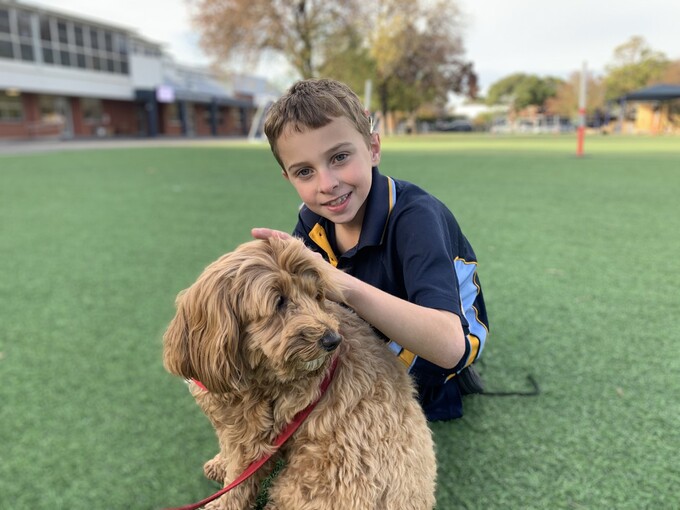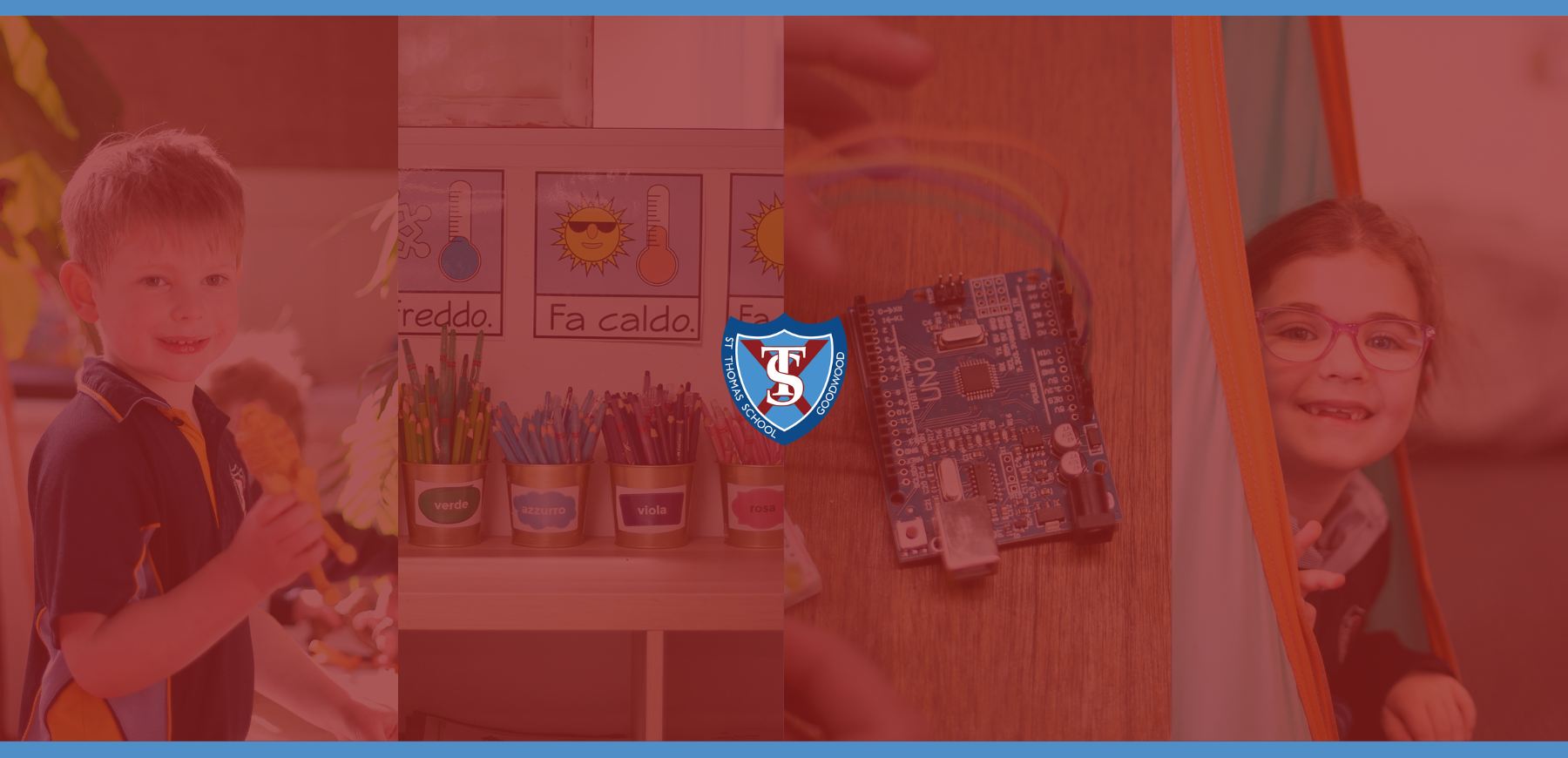Visible Wellbeing
Visible Wellbeing at St. Thomas is a whole school approach that focuses on promoting and nurturing the mental, emotional, and social well-being of students and staff within the school environment. It emphasises creating a culture where well-being is visible, valued, and actively promoted. The Visible Wellbeing approach is underpinned by the ‘Search Framework’ which provides a structure for schools to assess, improve, and sustain well-being programs, with a focus on evidence-based practices and positive student outcomes.
The ‘Search Framework’ includes:
Strengths: A strength is defined as a positive quality/talent that is energising, utilised and that we perform well at. Strengths help us match ourselves and other people to our environments, and allows us to better meet challenges by utilising those qualities where we can be our best selves.
Emotional Management: Emotional management is our ability to distinguish between our emotional states as they arise, and make choices to manage those emotions in a way that boosts our wellbeing. Emotional management helps us get along better with other people, support other people when in need, but also puts us in a significantly better mindset to approach learning and difficult cognitive tasks.
Attention and Awareness: These are skills and practices that allow us to choose what we pay attention to, and how to maximise the limited selective attention spans that we have – even as adults, we have an attention span of around 35 minutes!
Skills in Attention and Awareness help us to choose what we would like to pay attention to, and shift our attention to things that bring us joy and energy rather than something deflating or anxiety-inducing.
Relationships: Relationship skills allow us to build the wellbeing both of the person using the skills, and the other member/s of those relationships. These relationships skills allow us to notice more of the cues from those around us and respond to them in a way that meets their needs and engages more fully with the emotional state of that person.
Coping: Coping is the ability to bounce back from setbacks or perceived failures, and bounce forward to more optimal outcomes. Coping skills and resilience in general are key life skills – as we know that failure and disappointment are a part of daily life, so must be the ability to bounce back and heal from the negative experiences we encounter.
Habits and Goals: Habits and goals are inextricably linked, and are supported by underlying psychological processes that can be refined to be more effective. Additionally, strong habits and goals practices not only improve our achievement but also contribute to higher levels of wellbeing.
For more information on this subject, please follow this link.

Meet Gnocchi!
Our St Thomas therapy dog, Gnocchi, is a dedicated member of our school community, specially trained to provide comfort, support, and companionship to students and staff alike. Gnocchi visits our school twice a week, helping to create a warm and welcoming environment where children feel safe and valued.
Our therapy dog engages in various activities tailored to meet the emotional and social needs of students. They may participate in reading sessions, where children read aloud to them, helping to boost confidence and improve literacy skills in a non-judgmental setting. The presence of our therapy dog is designed to reduce stress and anxiety, providing a calming influence during challenging moments.
Beyond emotional support, our therapy dog promotes social interaction and empathy among our students, encouraging kindness and responsibility. Gnocchi’s unconditional love and non-verbal communication skills create opportunities for meaningful connections and positive experiences within our school community.


